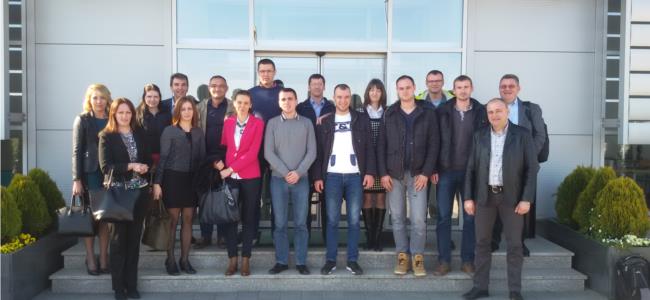08.04.2016 //
Our grantee, Automotive Cluster of Serbia-AC Serbia, is trying to increase productivity and competitiveness of companies in the Serbian automotive industry, in accordance with environmental standards.
Experience shows that the application of cleaner production can significantly improve the competitiveness of industry and reduce the negative environmental impact of existing production processes due to the efficient use of water, energy and raw materials.
Therefore, the Embassy supported Automotive Cluster of Serbia-AC Serbia to develop programmes for increasing the resource efficiency of production, minimise waste and emissions and maximise product output, based on internationally recognised methods and requirements for clean production. The overall goal is to improve competitiveness of the industry.
In a bid to reach this goal, AC Serbia is organising workshops and field visits for their members and other companies in the industry and making business case development plans and preparations of the cleaner production programme.
The most recent activity within the project included a visit to Elektrovat company in Cacak on March 25, where representatives of five companies in the industry were introduced to new operations and techniques for cleaner production.
According to Mr Igor Vijatov, director of AC Serbia, three companies (EuroZeit – Sremska Mitrovica, Zastava Inpro – Kragujevac, TurboServis – Uzice) presented their own production processes, consumption of electricity and water as well as waste management. This was followed by lively discussion on these topics.
At the end of the workshop Mr Nenad Bozic, expert on cleaner production, briefly presented the opportunities for energy savings in the systems for production of compressed air.
The project is also in line with the Sixth Community Environment Action Programme of the European Commission. The programme stipulates that the enlargement process should sustain and protect the environmental assets of the candidate countries, like Serbia, and should maintain and strengthen sustainable production and consumption.





